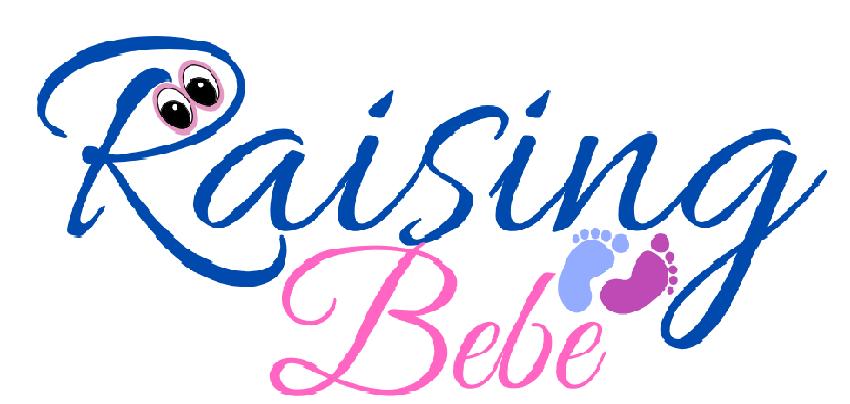Physical development is a crucial aspect of a child’s overall growth, affecting not only their health and well-being but also their emotional and cognitive development. From the moment they are born, children begin to develop motor skills, coordination, strength, and physical health. Parents and caregivers play an essential role in supporting these physical milestones, ensuring that children grow up strong, healthy, and capable.
In this post, we’ll explore the importance of physical development, key milestones to look out for, and ways to foster a healthy physical foundation for your child.
Why Physical Development is Important?
- Supports Healthy Growth: Physical development ensures that a child’s body is growing at a healthy rate. This includes everything from the development of muscles and bones to the proper functioning of internal systems like the heart and lungs. Adequate physical activity helps children maintain a healthy weight, build bone density, and support organ development.
- Improves Motor Skills: Developing fine and gross motor skills is a major part of physical development. Fine motor skills involve smaller movements, such as gripping a pencil, tying shoes, or using utensils. Gross motor skills involve larger movements, like running, jumping, and throwing. Both types of motor skills are vital for independence and daily functioning.
- Enhances Cognitive Functioning: Physical activity and movement have a direct impact on brain development. Exercise increases blood flow to the brain, improving cognitive functions like memory, focus, and problem-solving. Studies show that children who engage in regular physical activity tend to perform better academically and have better attention spans.
- Builds Confidence and Self-Esteem: As children gain physical strength and mastery over their bodies, they develop a sense of accomplishment. Whether it’s learning to ride a bike, run faster, or play a sport, physical milestones give children confidence in their abilities. Achieving physical goals boosts self-esteem and motivates them to continue developing.
- Prevents Future Health Issues: Establishing healthy physical habits early on can set the stage for a lifetime of good health. Regular physical activity, a balanced diet, and healthy habits help prevent issues like obesity, heart disease, and diabetes, ensuring children have the best chance at leading a healthy adulthood.
Key Milestones in Physical Development
Children’s physical development follows a general pattern, although every child is unique and will reach these milestones at different times. Some key stages of physical development include:
- Infancy (0-2 years):
- Gross Motor Skills: Infants begin by lifting their heads, rolling over, sitting up, and crawling. By around 12 months, most children can stand with support and take their first steps.
- Fine Motor Skills: Babies start developing the ability to grasp objects, transfer things from one hand to another, and explore their world through touch and sight.
- Physical Growth: Rapid physical growth occurs in infancy, with babies doubling their birth weight by 5 months and tripling it by their first birthday.
- Toddler (2-4 years):
- Gross Motor Skills: Toddlers become more mobile, with improved balance, running, and climbing. They start jumping, kicking balls, and learning to ride tricycles.
- Fine Motor Skills: Toddlers develop more hand-eye coordination, enabling them to stack blocks, draw simple shapes, and use utensils more effectively.
- Physical Growth: Growth continues at a steady rate, with toddlers beginning to gain better control over their bodies.
- Preschool (4-6 years):
- Gross Motor Skills: Preschoolers refine their ability to run, jump, skip, and balance. They begin to improve coordination and may start participating in organized physical activities like sports.
- Fine Motor Skills: Children at this stage can use scissors, draw detailed pictures, write their name, and complete puzzles.
- Physical Growth: Growth slows down slightly, but children continue to gain strength and stamina, developing more control over their movements.
- Early Elementary (6-8 years):
- Gross Motor Skills: At this age, children’s gross motor skills continue to improve. They become more skilled in sports, cycling, and swimming.
- Fine Motor Skills: Children can complete more intricate tasks like writing neatly, tying shoelaces, and using tools for crafts.
- Physical Growth: Growth is steady but slower compared to earlier years. Children begin to develop their personal coordination and physical preferences.
- Later Elementary (8-12 years):
- Gross Motor Skills: Children refine athletic abilities and physical skills. They engage in more complex activities like playing team sports, participating in gymnastics, and improving strength and endurance.
- Fine Motor Skills: Children gain further precision in their fine motor skills, allowing them to complete detailed artwork or more complex school projects.
- Physical Growth: Growth rates vary, but children continue to gain strength, with many experiencing a growth spurt during this time.
Ways to Foster Healthy Physical Development?
- Encourage Physical Activity
Physical activity is essential for promoting strong bones, muscles, and cardiovascular health. Encourage your child to engage in active play, sports, and outdoor activities. Running, jumping, dancing, and playing games like tag or catch help strengthen gross motor skills and improve overall fitness. The key is to make movement fun! - Provide Nutritious Food
A balanced diet plays a crucial role in supporting physical development. Ensure that your child gets a variety of nutrients, including proteins, healthy fats, vitamins, and minerals. Calcium-rich foods like milk, cheese, and leafy greens support bone health, while lean proteins like chicken, fish, and beans fuel muscle growth and repair. - Get Enough Sleep
Sleep is when much of the body’s growth and recovery happens. Children need varying amounts of sleep depending on their age. For example, preschoolers need around 10-13 hours per night, while school-age children require 9-12 hours. Adequate sleep supports growth, boosts immune function, and aids in cognitive and emotional development. - Promote Balance Between Physical and Mental Health
Physical development is intertwined with mental health. Encourage your child to engage in both physical activity and relaxation to maintain a healthy balance. Activities like yoga, mindfulness, or simply spending time outdoors in nature help children develop a strong mind-body connection. - Limit Screen Time
While technology is a big part of modern life, excessive screen time can negatively impact physical development by promoting a sedentary lifestyle. Set healthy limits on screen time and encourage other activities, such as sports, reading, or playing outside, to keep your child physically active. - Foster Social Interaction Through Group Activities
Group activities, such as sports teams, dance classes, or group playdates, allow children to interact with others while improving their physical skills. Teamwork, communication, and collaboration are important lessons learned through physical play, all of which support both physical and social development. - Provide Positive Reinforcement
Celebrate physical achievements, big or small. Whether it’s mastering a new physical skill or simply showing persistence in learning something new, acknowledging your child’s efforts helps build their confidence. Positive reinforcement encourages a growth mindset and motivates children to continue striving for new milestones.
Final Thoughts
Physical development is a lifelong journey that starts early and lays the foundation for a child’s overall health, happiness, and success. By encouraging physical activity, providing a nutritious diet, and fostering a positive environment, you can help your child grow strong, healthy, and confident. As you support their development, remember that physical health isn’t just about strength or athletic ability—it’s about nurturing a child’s well-being in mind, body, and spirit. To learn more about promoting physical health and development in children, visit KidsHealth by Nemours, which offers valuable resources on children’s health, growth, and fitness.
By focusing on physical development and making it an integral part of your child’s daily life, you are providing them with the tools they need to lead a healthy and active life, now and into adulthood.

